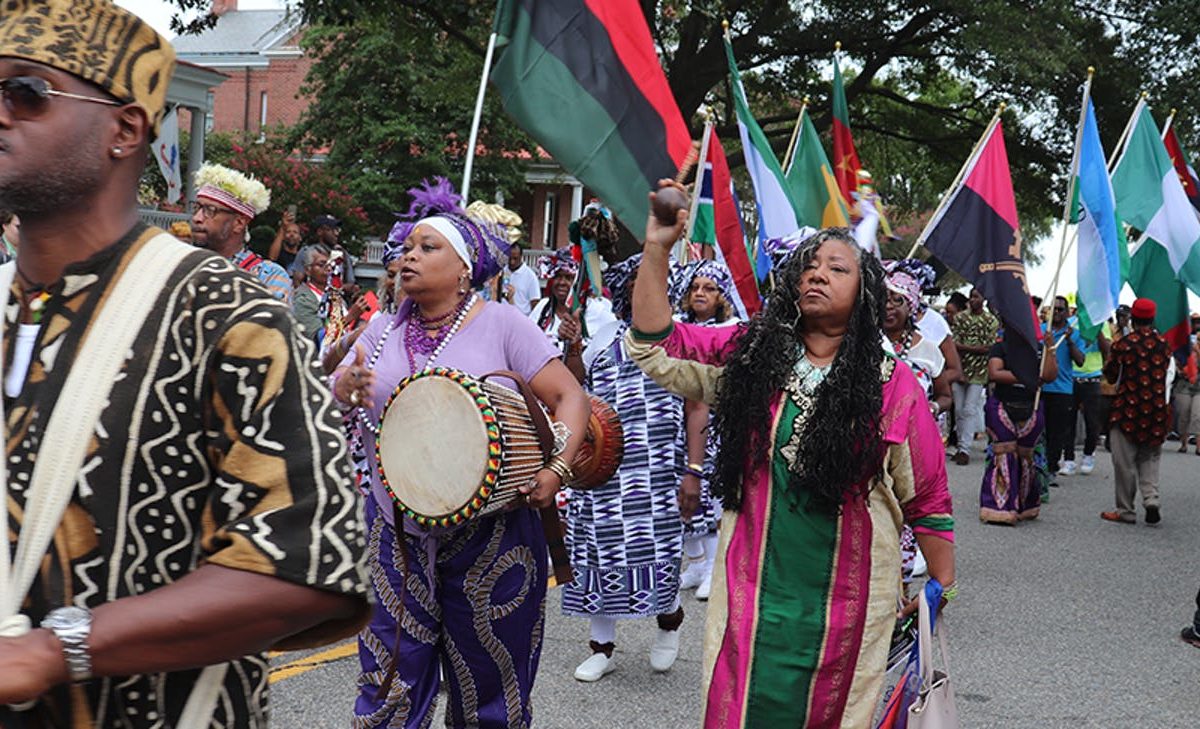
This article first appeared On EDSURGE PODCAST, September 17, 2019
This article is part of the guide The EdSurge On Air Podcast.
Hampton, Va—Toward the end of August in 1619, a ship carrying “20 and odd” Africans arrived at Point Comfort in Virginia, the first permanent English colony in North America, and were sold to the settlement’s leaders.
Last month, historians, officials and the public gathered at that same strip of land to commemorate the 400th anniversary of the occasion. With speeches, music and drumming, they mourned the long history of American slavery and racism that began on Virginia’s shores, but also celebrated the myriad cultural contributions African Americans have made to the nation.
“It is an emotional time because it is the culmination, at least for me, of many years of trying to bring attention to this through the realm of scholarship, [and] encouraging scholars to start having conversations,” said Cassandra Newby-Alexander, a history professor and dean of the college of liberal arts at Norfolk State University in Virginia. While getting the facts and focus of this commemoration right has been a priority, it’s part of a much longer struggle to get academics and the public to take seriously and accurately the study of black history and culture.
EdSurge sat down with Newby-Alexander and Gloria J. Browne-Marshall, a professor of constitutional law at John Jay College of Criminal Justice, to talk about one group leading the charge to preserve history and educate us all: the Association for the Study of African American Life and History. We met in the library at Hampton University, a historically black college just a few miles from where the first Africans landed four centuries ago. Hampton is where the association chose to host its commemoration symposium, titled “400 Years of Perseverance.”
